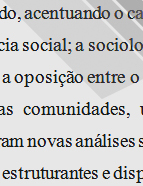

................................
In the field of legal historians, the idea also emerged that the history of institutions was essentially a history of social facts. This was a renewal “provoked” by Maurice Hauriou (1856-1929), a French legal historian who took institutions as objective “things”, whether legal norms or not, privileging the analysis of the process of the institution rather than the institution itself. Unlike Émile Durkheim, who emphasised the coercion of collective force to impose constraints, Maurice Hauriou replaced it with the concept of the power of consent of the parties to generate balance between social, economic and political forces. Therefore , in his view , this power was not limited to the State: “Une institution est une idée d’ oeuvre ou d’ entrepise qui se réalise et dure juridiquement dans un milieu social; pour la réalisation de cette idée, un pouvoir s’organise qui lui procure des organes; d’autre part, entre les membres du groupe social intéressé à la réalisation de l’idée, il se produit des manifestations de communion dirigées par les organes du pouvoir et réglées par des procédures” ( apud Millard, “Hauriou et la théorie de l’institution”, Droit et Société, no. 30/31, 1995, p. 392).
While these theories had enormous repercussions in Europe in overcoming the institutional history of statism, liberalism and positivism, they had no impact in Portugal until the end of the Estado Novo. The same happened with the historiographical movement of the Annales School and the revisionist wave of Marxist historiography, insofar as they regarded institutional history as something minor, a reflection of the mode of production and the productive forces. The trends that, despite everything, were countering this fashion, particularly from Louis Althusser (theory of overdetermination), were not even received in Portugal.
This work is financed by national funds through FCT - Foundation for Science and Technology, I.P, in the scope of the projects UIDB/04311/2020 and UIDP/04311/2020.
